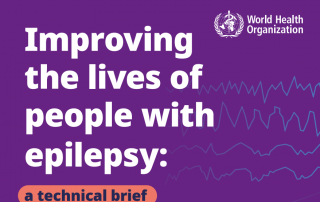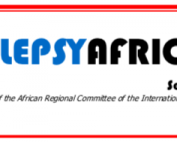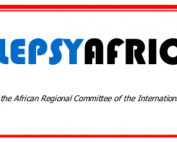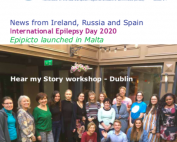Improving the Lives of People with Epilepsy: WHO Technical Brief
The World Health Organisation has launched an epilepsy technical brief to strengthen action for epilepsy. This brief is a technical complement to the Intersectoral Global Action Plan on epilepsy and other neurological disorders 2022–2031. It presents the key information on epilepsy and recommends actions to [...]
Tempestina e le gironiche
We are pleased to share news from A.E. (Associazione Epilessia) about the publication of Tempestina e le gironiche, a book that tells the story of how a child's first seizures and epilepsy diagnosis disrupted everyday life and forced the whole family to adjust. This book is [...]
Art Exhibition IBE Epilepsy & Society Symposium 14th AOEC Congress
As part of the recent AOEC Congress, we called for art submissions on the theme of stigma. Our thanks to all who entered for your time and effort. Art Submissions at the IBE Epilepsy & Society Symposium as part of the 14th Asian and Oceanian [...]
LAEC Regional Winners 2024
Latin America Regional Golden Light Award Winners 2024 The IBE Golden Light Awards are an opportunity to recognise and reward young people affected by epilepsy - either because they have epilepsy or have made a significant positive impact on the lives of others who have [...]
Established in 1961, the International Bureau for Epilepsy (IBE) is an international organisation for national epilepsy organisations (IBE chapters) that exists to provide support for a strong global network, encourage the development of new chapters in underserved areas of the world, and to encourage communication and collaboration among all members so as to meet our mission and vision.
Our members are patient/family focused and driven organisations and we work collaboratively with our professional and government partners worldwide.
Our strategic priorities are to ensure that epilepsy is
recognised as a health priority worldwide; that the human and civil rights of people with epilepsy are enhanced and protected wherever they might live; that people with epilepsy are empowered to maximise quality of life; and that research into prevention, treatment, care and consequences of epilepsy are promoted.
We work to achieve these priorities through a range of programs including:
- Public Information and Health Education
- Advocacy
- International Best Practice Exchange
- Helping Build Communities of Care
Sign Up to the IBE Newsletter
What is Epilepsy?
Epilepsy is one of the most common serious diseases affecting more than 50 million people globally. There are many difference causes for epilepsy including genetic disposition, head trauma or brain tumour.
Epilepsy affects almost every aspect in the life of the person diagnosed with the disease. For many people with epilepsy, the stigma attached to the disease is more difficult to deal with than the disease itself.
People with epilepsy have a 3-6 times greater risk of premature death. Many of the deaths from epilepsy could be prevented with appropriate medication and treatment.











